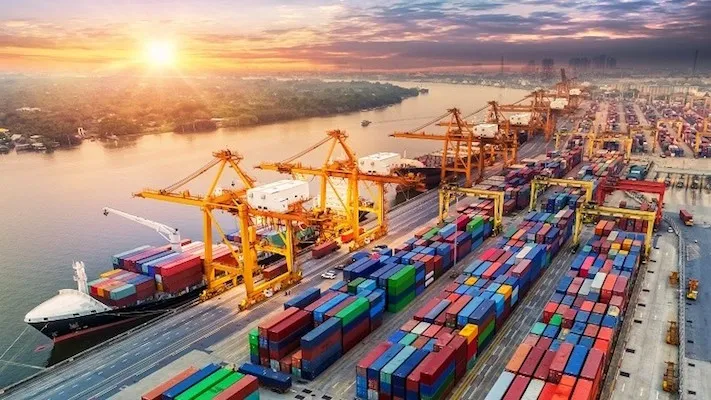Periods gone by when nations’ development indices, growth and viability were measured based on solid infrastructure. The parameters shifted slightly to include income capital per head powered by both National Domestic Product (NDP) and Gross Domestic Product (GDP) respectively. These economic trajectories are like rockets as they propel seamlessly without special consideration for nations that lag behind.
Not done, the trajectories again, leapfrogged from just considerations of infrastructure, national domestic product and gross domestic product of countries to include nations’ External Reserves (ERs) and Human Capacity Resource (HCR). Judging then from the above, it is no gainsaying that our country has continued to grapple with the challenges of meeting these global economic expectations
Credit must, however, be given to the United Nations and other Development agencies that have and continued to extend plethora of economic interventions to the developing economies, albeit with minimal impressions due to the herculean nature of these deficits.
Beyond just setting up socio-politico cum economic goals, development can only happen when result-oriented development concepts evolved, are understood and can be applied within the content of specific conceptualization and public acceptability. The Free Trade Zones Scheme, is therefore, a good example of a global development model with capacity to propel industrialisation in developing economies.
It is imperative to state that the developed economies have continually leveraged on the zone scheme, a concept that supports free market system within an enclave to grow in lips and bounds with positive ripple effects in the nations and citizens.
In the light of this, developing nations like China, Brazil, Malaysia, Taipei, United Arab Emirate (UAE), Dubai to be specific, South Africa, Kenya, Egypt and host of others have long found economic respites in zone operation.
No doubt, the free trade zone concept remains a wonderful global economic concept that promotes Foreign Direct Investment (FDI), Local Direct Investment (LDI), manufacturing and production, employment, revenues, infrastructural transfer with industrialisation as its ultimate end product. It is indeed a one-stop-shop business ecosystem where operators and investors are exempted from taxes, levies and duties within the zone to enhance export.
Nigeria has never been found wanting in policy development, conceptualisation or adoption. The constraint has always been with clear lack of political-will to religiously implement such a policy. The country like its peers mentioned above signed off to free trade zone concept in 1992 when the Nigeria Processing Zones Authority (NEPZA) was established by an Act of parliament to oversee the scheme.
The attempts of previous governments in sustaining the scheme cannot by any stroke of imagination be eroded, but the fact is that not much attention was given to this regulatory body to contribute substantially to the country’s industrialisation.
Respite, however, came when President Muhammadu Buhari returned from an on-the- spot tour of the scheme in China in 2016. The Chinese government had during the period of the country’s `isolation’ used the zone concept to develop its infrastructure, revamped the economy to a competitive level that today stands as an envy of the world.
President Buhari had to quickly re-evaluate NEPZA and its workforce with the bid to strengthening it in order to replicate the China’s model of free trade zone. An all-encompassing economic development model that does not localize development. It remains the desire of the president to use the zone scheme to firmly integrate the country.
Like a servant who understands the mind of his master, Prof. Adesoji Adesugba, himself, a renowned international investment promoter, has been brought into the saddle by the president as managing director and chief executive officer of NEPZA to fast track all processes that could facilitate the success of the scheme.
As a measure of commitment to the success of the scheme and beyond improving on the budgetary allocation for NEPZA, the president went further to approve six Special Economic Zones (SEZs) across the six geo-political zones of the country. These zones when fully developed would alter the country’s present development obscurity.
Prof. Adesugba upon assumption of duty on July 1, 2020 reeled out five focus areas which included medical/pharmaceutical, technology, agriculture, mining and tourism. The indefatigable managing director has neatly intertwined these abovementioned areas to power these approved six special economic zones made by the president.
Already, tangible steps have been taken to commence the development of three of the approved special zones for the year billed to be sighted in Lagos, Kwara and Katsina States respectively. The ones for Ebonyi, Benue and Sokoto would constitute the second phase of implementation.
Furtherance to this, the Authority took delivery of the Certificate of Occupancy for 500 hectares for the Medical Special Economic Zone and 276 hectares for Agro-allied Special Economic Zone respectively March 10 in Ilorin.
The NEPZA chief executive had described Kwara state as a charming investment destination while making his remark at the occasion.
Adesugba had hinged his remark on what he called, “The glaring improvement on infrastructure in the state by Governor Abdulrahman Abdulrazaq,’” which according to him has increased the value of the state as a magnetic investment destination.”
The NEPZA boss further stated that history was been made with the take-over of the site for the special economic zones, adding that arrangement were underway to commence the development of the locations as both state-of-the-arts medical and business hubs.
Adesugba also explained that the medical zone would be home to world class hospitals and pharmaceutical industries while the agro-allied zone would serve as convergence spot for agricultural food chain where farmers, agro-allied investors and industries would reap the economic advantages associated with zone operation.
“Investment does not stay in the air, investment goes to destinations, investment looks for succor where it is most welcomed. Investment goes to where there is a will to support it. We have discovered that Kwara State seems to be a welcoming state that we can work with in terms of setting up of a special economic zone.
“I dare to say that this must have been the contemplation of those who have been here before me and that of President Muhammadu Buhari who is supporting the industrialization of Nigeria and also ensuring that we who are the implementers do our jobs unhindered.
“The vision of the president is to use the free trade zone scheme to fast track the industrialization of the country. Let me reiterate by saying that the opportunity to warehouse trade zone is open to all states of the federation,”he added.
Odeh, head, Corporate Communications, NEPZA, writes from Abuja





